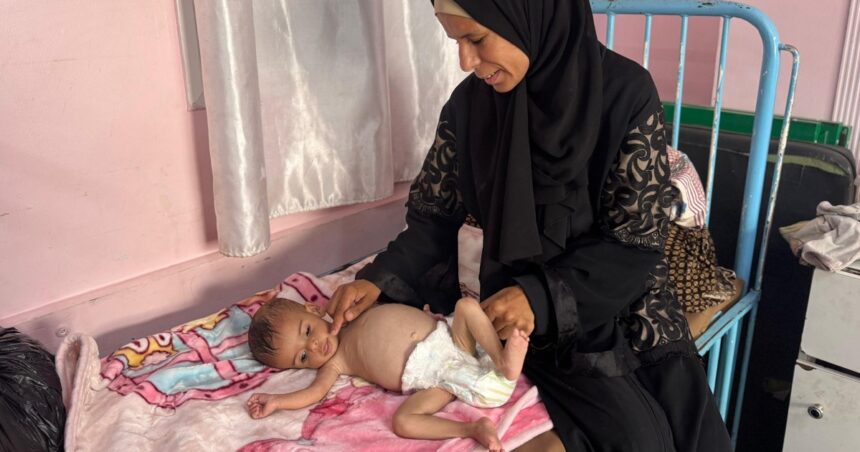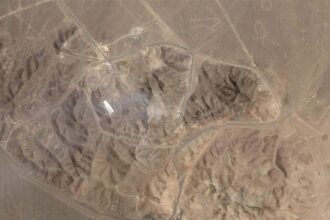The hollow cries of malnourished infants echo through makeshift shelters across Gaza, where a devastating humanitarian crisis has transformed the fundamental act of feeding a child into an impossible task for thousands of mothers. As the conflict enters its ninth month, medical professionals are reporting an alarming surge in severe malnutrition cases among Gaza’s most vulnerable population – babies under six months old.
“We’re seeing infants arrive with severe dehydration, muscle wasting, and metabolic imbalances that would be entirely preventable under normal circumstances,” explains Dr. Mahmoud Salhab, a pediatrician working in Gaza City’s remaining functional hospital. “Many of these babies were born healthy, but now their bodies are shutting down due to simple lack of nutrition.”
The crisis stems from a lethal combination of factors. Aid deliveries have plummeted by nearly 60% since December, according to United Nations Relief and Works Agency statistics. Meanwhile, the destruction of Gaza’s health infrastructure has left an estimated 70% of medical facilities non-operational, eliminating crucial support systems for new mothers and infants.
For 28-year-old Amira Khatib, the struggle to feed her three-month-old son has become all-consuming. “I haven’t eaten properly in weeks, so my milk has nearly stopped,” she told our correspondent during a rare delivery of humanitarian supplies to central Gaza. “The little formula we receive must be mixed with contaminated water. I know this makes him sick, but what choice do I have?”
Health experts confirm that maternal malnutrition directly impacts breastfeeding capacity. Dr. Sarah Jameson of International Children’s Relief explains: “When mothers don’t consume enough calories, their bodies cannot produce adequate milk. It’s basic physiology, not a matter of will or determination.”
The crisis has intensified following reports that infant formula shipments have been specifically targeted at border checkpoints, with aid workers describing systematic delays and rejections of these essential supplies. Humanitarian organizations estimate that less than 15% of needed formula is currently reaching Gaza’s estimated 45,000 infants under six months old.
“What we’re witnessing is preventable starvation,” states Michael Hartman, nutrition coordinator for Global Health Partners. “The denial of food and formula to this population violates the most basic principles of international humanitarian law.”
Canadian officials have expressed growing concern about the situation. Foreign Affairs Minister Mélanie Joly recently called for “immediate and unrestricted humanitarian access” to Gaza during meetings with international counterparts, signaling Canada’s position that the protection of civilians must remain paramount.
Medical professionals inside Gaza report that the consequences extend beyond immediate hunger. Dr. Layla Masri, neonatologist at Al-Aqsa Hospital, warns of long-term implications: “The first six months of life represent a critical developmental window. The malnutrition we’re seeing now will have permanent effects on cognitive development, immune function, and physical growth that will follow these children for life.”
As international pressure mounts for increased humanitarian access, the clock ticks for Gaza’s smallest victims. The United Nations Security Council has called for expedited aid deliveries, but implementation remains slow and inconsistent according to observers on the ground.
The question now facing the international community is stark: How many preventable infant deaths are acceptable before meaningful action is taken to ensure that the most basic needs of Gaza’s children are met?

























